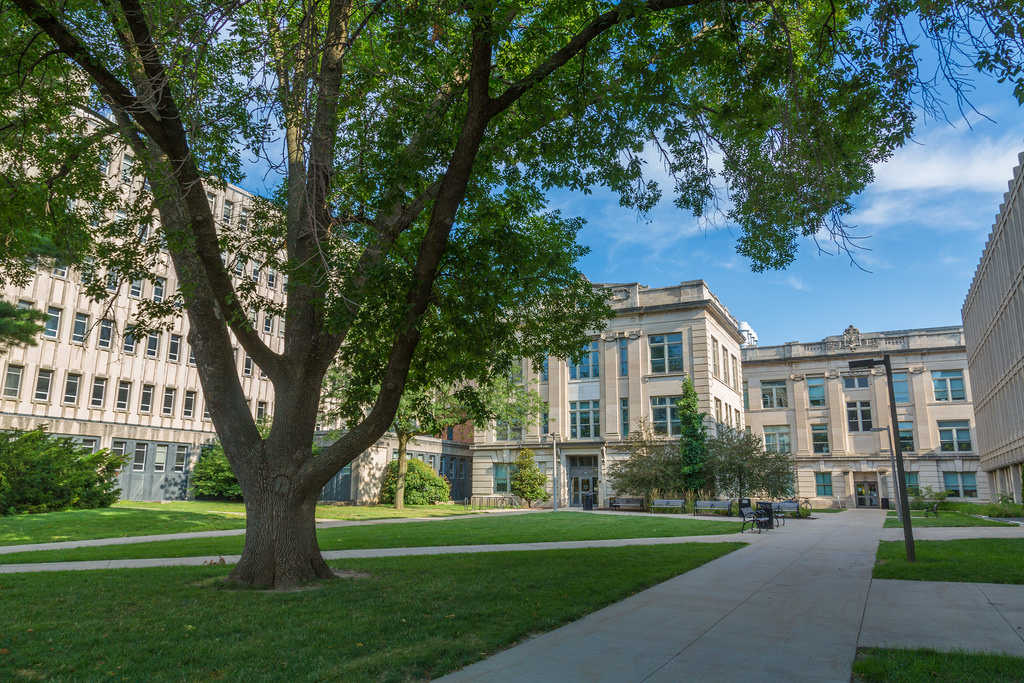A group of Christians students from a University in Iowa has been shut down after it was revealed that they ask new members to sign a “Statement of Faith” that pertains to mainline Christian beliefs. Now, they have filed a lawsuit against the academic institution.
Business Leaders in Christ (BLinC) is a collection of students from the University of Iowa who are seeking to encourage each other in living out their Christian faith in whatever field of business they find end up working in. But the University argued that being required to sign any religious statement violates their anti-discrimination policy.
“The University of Iowa recently found Business Leaders in Christ violated the UI’s Human Rights Policy and the Iowa Civil Rights Act,” University of Iowa Media Relations Director Anna Bassett told Christian Post.
“Membership and participation in the organization must be open to all students without regard to race, creed, color, religion, national origin, age, sex, pregnancy, disability, genetic information, status as a U.S. veteran, service in the U.S. military, sexual orientation, gender identity, associational preferences, or any other classification that deprives the person of consideration as an individual,” she continued.
“The organization will guarantee that equal opportunity and equal access to membership, programming, facilities, and benefits shall be open to all persons.”
The section of the group’s Statement of Faith that been brought under the spotlight simply reads: “Members should conduct their careers without the greed, racism, sexual immorality and selfishness that all too often arise in business, political, and cultural institutions.”
The Becket Fund for Religious Liberty is representing the group of students in a legal battle against the University. They summarized the key issues in the case on their website:
“University officials claimed that because BLinC requires its leaders to sign a Statement of Faith, agreeing that they believe and will follow BLinC’s religious beliefs, it is violating the school’s antidiscrimination policy.”
BLinC was subsequently told that for them to be reinstated as an official club on campus, it would have to change its Statement of Faith, which would mean altering its core beliefs.
So, what are the group’s central aims? Becket summarizes:
“BLinC’s members are Christians who answer the call to serve because of their deeply held beliefs. At the heart of BLinC’s identity is its mission to form future business leaders who will integrate their religious values such as integrity, service, and compassion into the workplace.”
Becket argues that the University’s actions against BLinC are unprecedented in their discriminatory nature. Indeed, the college permits the rights of fraternities at the University of Iowa to admit only men. Additionally, The Feminist Union can require its members to agree on issues of contraception and abortion before their join.
However, when it comes to this Christian group, who engage in charitable work including partnering with a non-profit that offers an after-school program for mentoring at-risk youth, a whole different set of rules seem to be applied.
“The school is discriminating against BLinC by barring it from having the same ability to select leaders who share and live by its mission,” the Becket summary concluded.
So, what sparked all of this?
Well, the controversy supposedly began back in 2016 when a student complained that he was denied a position in the group’s leadership on account of him being openly gay. However, BLinC argued that the student’s claim was false, explaining he was denied membership over his rejection of the BLinC’s Statement of Faith.
“BLinC declined the student’s request because he expressly stated that he rejected BLinC’s religious beliefs and would not follow them,” the organization said in its complaint, as reported by The Washington Times.
The group is outraged at the decision to remove them from the list of official university clubs.
“This is 2017, not 1984,” Jacob Estell, the student president of BLinC, told Becket in a statement. “Our beliefs weren’t made by us, and they can’t be changed by us either — certainly not just to satisfy Orwellian government rules.”
“This is premeditated religious discrimination, plain and simple,” Eric Baxter, senior counsel at Becket, told Fox News. “We hope that this serves as a reminder to universities everywhere that they cannot discriminate against student groups just because they don’t like their beliefs.”



